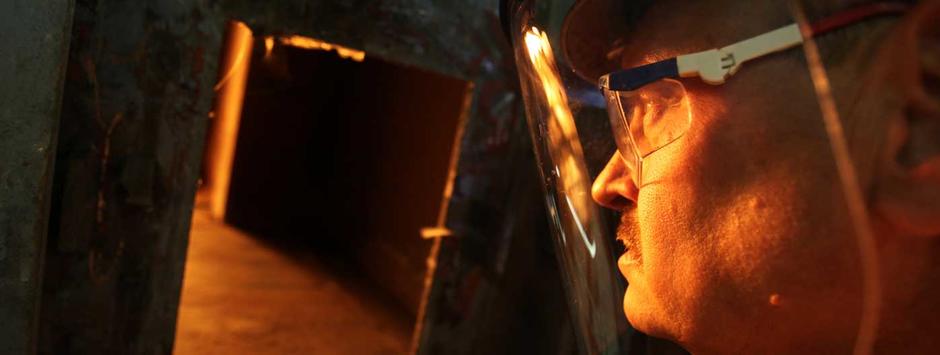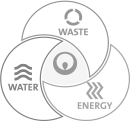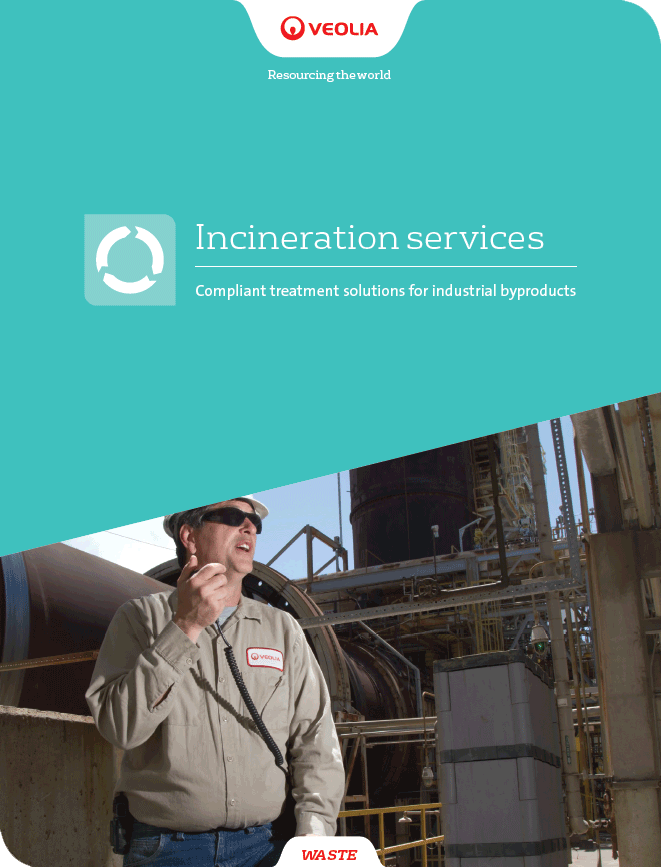
The challenge as we see it
You have reduced, reused and recycled all you can yet you still have materials that need to be responsibly managed. High-temperature incineration is one of the most effective methods for efficient, safe and cost-effective ways to destroy hazardous organic compounds.
Our differentiated value
Our incineration services provide destruction of hazardous waste at a cost-effective price throughout our network of incineration facilities, strategically located across the U.S. and are fully permitted to meet all applicable regulations and requirements. We provide the most environmentally compliant, safe and cost-effective incineration service in the industry. Our three treatment complexes and their certification permits include:
- Gulf Coast Service Center, Port Arthur, TX: RCRA, TSCA, CERCLA, Dioxin and Furans medical and non-hazardous
- Trade Waste Incineration, Sauget, IL: RCRA, CERCLA and non-hazardous
- Gum Springs Treatment Complex, Gum Springs, AR: RCRA, CERCLA and non-hazardous

Veolia is uniquely positioned to service industry, government and commercial entities in improving performance, managing water, waste and energy.
Learn how
Our solutions for incineration services
We provide complete cradle-to-grave services, from collection and transportation of your hazardous waste materials, through destruction to final disposal. All of our incineration services can be custom-matched to the materials and specific needs you have.
- Assured destruction, including documentation, taking possession, witnessing destruction on your behalf, or observation by your team of receipt, storage and incineration
- Direct inject capabilities for hard to handle liquids
- Collection and transportation services to an incineration facility
- Prompt, safe and compliant incineration of waste
- A full-range incineration system that includes both rotary kilns and fixed-hearth incineration technology
- In many areas, access to the efficiencies and cost savings of rail transportation
Disposal services for certain types of PFAS
Veolia offers an environmentally responsible disposal option for some PFAS material through incineration. Veolia continues to invest significant resources into developing effective solutions for PFAS management.
We operate the only incineration facility in the United States permitted to destroy three categories of waste; hazardous waste, PCB and dioxin waste. The Port Arthur facility meets all current MACT standards, and for PCB’s, achieves a destruction or removal efficiency (DRE) of 99.9999% through extremely high incineration temperatures.
Waste streams we could manage include aqueous film forming foam (AFFF), debris, soil and other AFFF spill clean up and remediation waste. Additionally, we could manage water filtration media such as used activated carbon, diatomaceous earth and ion exchange resins in canisters and filters. Acceptable shipment methods include totes, drums, tankers, roll off boxes and dump trailers.
Our experts are available to speak with about your current situation and needs.
Our incinerator facilities
Trade Waste Incineration Facility
Our Trade Waste Incineration facility has the added capability of being licensed by the Bureau of Alcohol, Tobacco, Firearms and Explosives (ATF) to store and destroy explosives, which includes anything from airbag actuators and ammunition to blasting caps and bomb components.
The Trade Waste Incineration facility can accept these candidates for assured destruction:
- DEA controlled substances
- Drugs
- Goods with expired dates
- Seized goods
- Returned goods
- Lab chemicals
- 3D printing waste
Gulf Coast Service Center
Wastes requiring different treatment technologies can all be shipped to Veolia’s Gulf Coast Service Center. For example, if you have solvent for recycling, treatment sludge for landfill and organics for incineration you can ship them all to us in one truck. The Gulf Coast Service Center facility can also accept PCBs and dual waste, which carry hazardous and medical classifications.
Other materials accepted at the Gulf Coast Service Center include:
- Aerosols
- Drum liquid
- Drum solid
- Drum sludge
- Bulk liquid
- Lab packs
- PCB drum liquid
- Bulk solids and sludge
- Dual waste
- Cylinders
- PCB capacitors
- PCB drum solids and sludge
- PCB bulk solids and sludge
- PCB bulk liquid
Gum Springs Treatment Complex
The Gum Springs, AR facility is located 70 miles southwest of Little Rock, and five miles
south of Arkadelphia in Clark County, Arkansas. The treatment facility occupies approximately 75 acres in the center of the site, and the landfill facility (for disposal of waste kiln residue), occupies about 90 acres in the northeast portion of the site.
- Directly rail served to receive tankers and gondolas
- Bulk RCRA liquids and solids via truck as well
- Raw material substitution available for certain materials
Facility Compliance
Veolia Incineration facilities lead the industry in MACT Compliance₁ with Veolia achieving an exceedance rate of 0.18 per month over a 76 month timeframe, versus a competitors at 29.4 per month over only 18 months. Our facilities are fully permitted to meet all applicable regulations and requirements, and assure destruction of hazardous waste, such as controlled substances₂.
₁The MACT standards, established by the U.S. Environmental Protection Agency (US EPA) for facilities burning hazardous wastes, include both emission standards (e.g., how much mercury can be emitted by a facility per hour) and operating standards (e.g., the incinerator has to operate between a minimum and maximum temperature). These MACT standards also establish strict monitoring rules, applicable to both sorts of standards, which require the installation and continuous operation of many different pieces of monitoring equipment on the incinerator.
₂The United States Drug Enforcement Administration (DEA) regulates certain chemicals by requiring strict tracking from the time of manufacture to the time of dispensation to the consumer. They are called Controlled Substances and can be found in Title 21 of the Code of Federal Regulations (CFR) section 1300. These chemicals are divided into several lists, detailed in the regulations as Schedule I, II, III, IV and V. Controlled Substances can range from non-hazardous materials to RCRA hazardous wastes.
The information contained in this statement is based on the Veolia group's understanding and know-how of the scientific and technical fields discussed herein as of the time of publication. Statements that may be interpreted as predictive of future outcomes or performance should not be considered guarantees of such, but rather reasoned assessments of the possible evolution of the technologies described. As this document is based on the state of the Veolia group's scientific, technical, and regulatory knowledge at the time of its publication, the completeness and accuracy of the information contained herein cannot be guaranteed. Descriptions contained herein apply exclusively to those examples and/or to the general situations specifically referenced, and in no event should be considered to apply to specific scenarios without prior review and validation.



